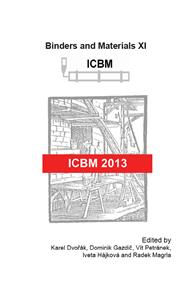[1]
J. Plachý, V. Petránek: The density of asphalt belts as one of the criteria for selection of suitable waterproofing material. Littera Scripta, České Budějovice: Institute of Technology and Business in České Budějovice, 2012, Vol. 5, No. 2, pp.275-285.
DOI: 10.7441/joc.2020.02.10
Google Scholar
[2]
ČSN EN 14695: 2010. Flexible sheets for waterproofing - Reinforced bitumen sheets for waterproofing of concrete bridge decks and other trafficked areas of concrete - Definitions and characteristics. Prague: Czech Standards Institution. 2010-05-01. Classification mark 727605.
DOI: 10.3403/30094530
Google Scholar
[3]
ČSN EN 14694: 2006. Flexible sheets for waterproofing - Reinforced bitumen sheets for waterproofing of concrete bridge decks and other trafficked areas of concrete - Determination of resistance of pre damaged sheets against dynamic water pressure. 1st ed. Prague: Czech Standards Institution, 2006-01-001. Classification mark 727676.
DOI: 10.3403/30094530
Google Scholar
[4]
J. Plachý, V. Petránek: Bitumen waterproofing sheets from the point of view of their composition in bridge deck waterproofing system. Silnice Železnice, Ostrava - Vítkovice: Konstrukce Media, s. r. o., 2012, Vol. 7, No. 2, pp.48-51.
Google Scholar
[5]
J. Plachý, B. Pelánková, Z. Caha, S. Sutliak: Bitumen waterproofing sheets for bridge insulation in the SLOVAK Republic – Physical and Thermo-Technical Properties. Conference SQUAERE, Liberec. 2013, ISSN 1801-822X.
Google Scholar
[6]
J. Plachý, F. Popp, V. Petránek: Bitumen waterproofing sheets for bridge waterproofing in the Czech Republic – Physical and thermally technical properties. Silnice Železnice, 2013. Ostrava - Vítkovice: Konstrukce Media, s. r. o., Vil. 8, No. 1, pp.38-42.
Google Scholar
[7]
ČSN 736242: 2010. Design and construction of pavements on road bridges. Prague: Czech Standards Institution. 2010-04-01. Classification mark 736242.
Google Scholar
[8]
STN 736242: 2010. Pavements on road bridges. Design and material requirements. Bratislava: Slovak Standards Institution. 2010-05-01. Classification mark 736242.
Google Scholar
[9]
ČSN EN 544: 2011. Bitumen shingles with mineral and/or synthetic filling – Product specification and testing methods. Prague: Czech Standards Institution. 2011-10-01. No 747709.
Google Scholar
[10]
ČSN EN 1109: 2000. Bitumen sheets for roof waterproofing. Determination of flexibility at low temperature. 1st ed. Prague: Czech Standards Institution, 2000-09-01. No 727633.
DOI: 10.3403/01932551
Google Scholar
[11]
ČSN EN 1109: 2011. Bitumen sheets for roof waterproofing – Determination of flow resistance at elevated temperature. 1st ed. Prague: Czech Standards Institution, 2000-09-01. No 727634.
DOI: 10.3403/30218658
Google Scholar


